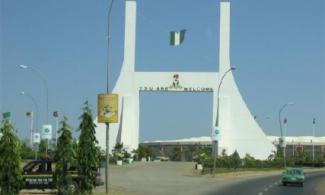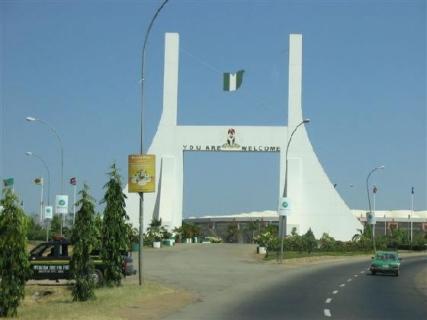
Nigerians need to work much harder if they really want to remain a united and strong country, capable of leading Africa and being looked upon by the outside world as a genuine African leader.
My readers may have been wondering where I have been in the past one month. I am sorry, I didn’t announce it. I was on holiday in my native country, Nigeria. I guess it was a well deserved 5-week vacation. But I am back now, somewhat more fortified with new observations, new experiences. A lot is indeed happening across the globe. From Brexit that has happened to Frexit that is most likely to happen, the fate of most nations appear to be hanging in the balance. No one is sure where the pendulum will tilt towards.
In Nigeria, the political atmosphere seems to be even more charged. The determination to bring the current leadership of the Senate on their knees, possibly because they disobeyed the party orders to clinch their positions has attained a sensitive level. No one would want to comment on a case in court for fear of being roped in for contempt. But when we look at the current situation we cannot help asking whether in Nigerian politics the rule that is generally observed in democratic countries which places the Party as supreme to any of its members is not the law. And if a member of a political party, for whatever reason, disobeys the instructions of the party, should the party continue to condone such a recalcitrant member or throw him out? What would be the best punishment for him? Indeed the travails that have haunted the duo of the Senate leadership may have actually come from the party hierarchy and not from the Presidency as many allege. In any case, what has the APC chairman, NEC and BoT said about what is going on with the Senate leadership?
From all this, and from what I observed during my vacation in Nigeria, Nigerians need to work much harder if they really want to remain a united and strong country, capable of leading Africa and being looked upon by the outside world as a genuine African leader. Nigerians need to evolve a genuine spirit of nationalism. No one is suggesting that this is going to be that easy. But with a meaningful political strategy Nigerian leaders can determine where to start, the road to follow, how long it could possibly take and the destination they plan for the nation to arrive at. Only Nigerians can do this for themselves. No one else and certainly no other country can do this for them, even if a hundred Senate leaders email them to intervene in the democratic evolution o a sovereign nation. Only Nigerians can save or mar Nigeria.
So, if Nigerians now want to start and shame those who predicted the demise of the Nigerian nation after the first 100 years of amalgamation, they must take a proper bearing. The first thing to note is that people tend to embrace and accommodate people who speak their language more than those who don’t. Thus, an Hausa man will be more at home discussing in Hausa language with a Yoruba, just as an Igbo will feel more at home with an Efik man discussing in Igbo language, and so on. What this means is that one way Nigerian leaders can bridge the ethnic disparity in the country could be to introduce a compulsory learning of the three main languages, Hausa, Igbo and Yoruba at primary school level in all the schools across the country. In about 10 years, they should be getting results. This also means that with time, no true Nigerian will feel so much as a stranger in any part of the country. And if that fails, it means that the ethnic hatred in Nigerians is intrinsically deep and the best course would be to go for a referendum so that each agitating section of the country can go, if that is what they want to do.
Another way to forestall all that is to look back at the 2014 National Conference. What is there about it that can stabilize the nation? The current administration of General Buhari should revisit that document and use its recommendations as a compass, to navigate the nation to safer shores. Basically, this would imply a total abrogation of the 1999 constitution. Nigerian legislators should sit down together and draw up a new constitution that will give states greater autonomy. In other words, each state should be allowed by a new constitution to manage its own local resources. That would be a constitution of the people, by the people, for the people and not a constitution of the military, by the military, for the people!
Nigeria is made up of about 250 ethnic groups and more than 250 languages. For administrative reasons, the government of General Ibrahim Babangida found it expedient to merge similar ethnic groups. He projected that this might also be useful in the allocation of resources. In other words, the creation of six geo-political zones that now make up Nigeria was a major constitutional compartmentalization of the country by General Ibrahim Babangida as military Head of State.
The South-South Zone comprises of Akwa Ibom, Bayelsa, Cross River, Delta, Edo and Rivers States. In this zone, Akwa Ibom State has in commercial quantity deposits of clay, lead, zinc, lignite (also known as brown coal), limestone, salt, uranium, oil and gas. Bayelsa State has Clay, gypsum, lead, zinc, lignite, limestone, manganese, uranium, oil and gas. Cross River State has got barite, lead, zinc, lignite, limestone, manganese, salt, uranium, oil and gas. Delta State has clay, glass-sand, gypsum, iron ore, kaolin, lignite, marble, oil and gas. Edo State has bitumen, clay, dolomite, phosphate, glass-sand, gold, gypsum, iron ore, kaolin, lignite, marble, oil and gas and Rivers State has clay, sand-glass, lignite, marble, oil and gas.
The South-West Zone comprises of Ekiti, Lagos, Ogun, Ondo, Osun and Oyo States. In this zone, Ekiti has got feldspar, granite, kaolin and syenite. Lagos State has bitumen, clay and glass-sand. But it is on the verge of joining the country's oil-producing states with the discovery of crude oil in commercial quantities in the coastal state. Ogun State has bitumen, clay, feldspar, gemstone, kaolin, limestone and phosphate. Ondo State has bitumen, clay, coal, dimension stones, feldspar, gemstone, glass-sand, granite, gypsum, kaolin, limestone, oil and gas. Osun State has columbite, gold, granite, gypsum, kaolin, limestone, oil and gas. And Oyo State has aquamarine, cassiterite (also known as tin stone), clay, dolomite, gemstone, gold, kaolin, marble, silimonite, talc and tantalite.
The South-East Zone comprises of Abia, Anambra, Ebonyi, Enugu and Imo States. In this zone, Abia State has got gold, lead, zinc, limestone, salt, oil and gas. Anambra State has clay, glass-sand, gypsum, iron ore, lead, zinc, lignite, limestone, salt, phosphate and oil. Ebonyi State has gold, lead, zinc and salt. Enugu State has coal, lead, zinc and limestone. Imo State has gypsum, lead, zinc, lignite, limestone, marcasite (also known as white pyrite), phosphate, salt, oil and gas.
The North-Central Zone comprises of Benue, Kogi, Kwara, Nassarawa, Niger and Plateau States. In this zone, Benue State has barite, clay, coal, gemstone, gypsum, iron ore, lead, zinc, limestone, marble and salt. Kogi State has coal, dolomite, feldspar, gypsum, iron ore, kaolin, marble and tantalite and mica. Kwara State has got cassiterite, columbite, feldspar, gold, iron ore, marble, tantalite and mica. Nassarawa State has amethyst (topaz garnet), barytex, barite, cassiterite, chalcopyrite, clay, columbite, cooking coal, dolomite, marble, feldspar, galena, iron ore, limestone, mica, salt, sapphire, talc, tantalite, tourmaline quartz and zireon. Niger State has gold, lead, zinc and talc. Plateau State has got barite, bauxite, betonite, bismuth, cassiterite, clay, coal, emerald, fluoride, gemstone, granite, iron ore, kaolin, lead, zinc, marble, salt, tantalite, columbite, molybdenite, phrochlore, salt, columbite, tin and wolfram.
The North-East Zone comprises of Adamawa, Bauchi, Borno, Gombe, Taraba and Yobe States. In this zone, Adamawa State has got betonite, gypsum, kaolin and mangesite. Bauchi State has gold, tin ore, columbite, gypsum, wolfram, coal, limestone, lignite, iron ore, and clay. Borno state has betonite, clay, diatomite, gypsum, hydrocarbon, kaolin and limestone. Gombe State has gemstone and gypsum. Taraba State has lead and zinc. And Yobe has soda ash and tintomite.
The North-West Zone comprises of Jigawa, Kaduna, Kano, Katsina, Kebbi, Sokoto and Zamfara States. In this zone, Jigawa State has butyles. Kaduna State has amethyst, aqua marine, asbestos, clay, flosper, gemstone, gold, graphite, kaolin, hyalite, mica, rock crystal, sihnite, superntinite, tentalime, topaz and tourmaline. Kano State has cassiterite, copper, gemstone, glass-sand, lead, zinc, pyrochinre and tantalite. Katsina State has kaolin, marble and salt. Kebbi State has gold. Sokoto State has clay, flakes, gold, granite, gypsum, kaolin, laterite, limestone, phosphate, potash, silica-sand and salt. And Zamfara State has coal, cotton and gold.
Despite the enormous solid mineral wealth that abounds in the country, it is difficult to see how these natural endowments have helped to make the ordinary Nigerian a happier person. Previous leaderships woefully failed to utilize these resources to salvage the fate of the ordinary Nigerian who walks the streets of the country's villages, towns and cities because everybody looked up to crude oil and Abuja sharing the proceeds of the oil revenue. Now, perhaps, it would become more in tune with the aspiration of Nigerians to remain united and seen as the forefront leader of the African continent if each state or zone is allowed to develop its own manpower and mineral resources, control its own police, manage its own educational system, its own postal services, its own customs department, its own airports, its own health care programs, its own civil service, its own roads and road usage, and its own internal revenue.
From its revenue, each state could contribute about 50% of its revenue to the Federation account to enable the Federal government manage the Immigration Department, the Central Bank, the Army and the Waterways that lead into neighboring countries.
Already, we know that at the state level the governors are now so powerful that they don’t seem to be accountable to anyone. So, it would be best if that situation is legalized so that they can deal with their own people and their own people can deal with them, rather than the governors sheltering their inabilities under the supposed big hammer from Abuja. Let them have the power and leave them to their other sons and daughters of the Land. Things won’t be as bad as they are now.
Finally, Nigerian legislators must muzzle up the political will to look themselves up as often as necessary in the mirror of the international community. They have been touted ever so often as the highest paid in the world. Sometimes, I wonder. What is it that Nigerian legislators are doing for their people that others in other democratic countries are not doing, even better? So, if they are serious, they should do something to prove to the rest of us that they are genuine. They should look at the wages of about four or five legislators from USA, UK, Germany, France, Canada, Japan, China, South Korea, and perhaps South Africa. They should take the average of all these countries as the maximum wage a Nigerian legislator must earn. Nigerians need to know that getting into public office is not all about creating avenues to loot the public treasury but to effectively use public funds to synergize public institutions like health, educational and recreational institutions among others.
Nigerians need a genuine spirit that will sow, water, and nurture Nigerian nationalism to fruition. The question is: does the political class have the political will to do so and pilot the people to the right destination? Or will it continue to be “business as usual”?
Emeka is a London-based journalist.
